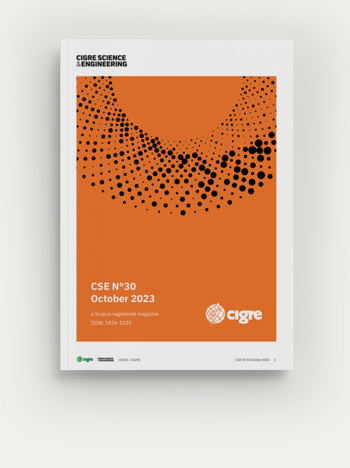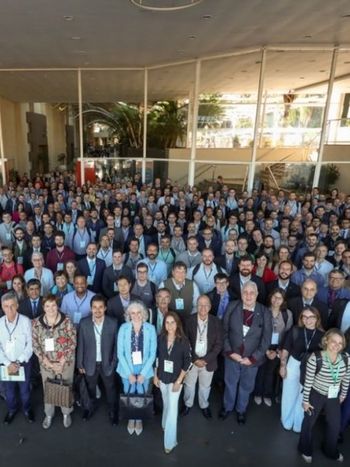CIGRE Africa - "CIGRE Academy" launch event with a 5-day capacity building endeavour
Dar es Salaam, Tanzania
28 July - 02 August 2023
By Antonio Iliceto – Africa WG Chair and Chair SC C1
& Kurt Dedekind - Chair SC C6
As part of the CIGRE Africa Working Group initiative, the long-standing target of starting a “CIGRE Academy” for sharing relevant Cigre body of knowledge most applicable to African developing countries, has been realised. The opportunity has been built on several ongoing threads of cooperation between the University of Dar es Salaam, the University of Rome (Italy), a Charity Association chaired by A. Iliceto providing grants to young electrical engineers, and the Tanzanian Utility TANESCO. It further exploits the kick-off of the European-funded project UMEME, which has a similar scope of on-site capacity building, and which is supported by the Engineering Practice of Studio Santi of Rome. The mix of contributions made it possible to organise the Conference in a short time and with limited financial and organisational support from CIGRE.
The UMEME project encourages the capacity building required to accelerate rural electrification (Tanzania is affected by very low access to electricity in rural areas) and to exploit Tanzania’s huge renewable potential: hydro, solar, some wind and geothermal, in order to meet the country’s SDG7 requirements.
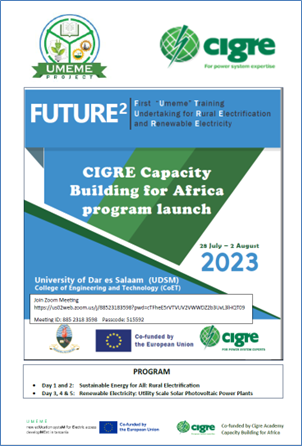
Training Program
The capacity building program, hosted by University of Dar es Salaam in their Library, was co-organised by the CIGRE Africa WG and by the UMEME project. The first three days were dedicated to the CIGRE Academy and a field visit to the largest Tanzanian power plant. The following three days were assigned to hands-on training on the design and specification of PV plants at utility scale. The sessions, facilitated by Prof Santos Kiwhele (Director of Power Systems and liaison reference of the entire event), had more than 40 attendees in person, and several joined virtually, including members from the academic world, utilities and institutions like REA, (the Rural Electrification public body tasked to enact rural electrification). All the recipients expressed a warm appreciation and look forward to future events of similar nature, for which several CIGRE SCs already have a portfolio of ready material and a roster of experts to present such interactions. An alternative option would be to repeat the present program in another African location.
The event started with greetings from Tanzanian authorities, from the UMEME project coordinators and a complimentary and welcoming message from the CIGRE Secretary General, Philippe Adam. The program followed with a comprehensive presentation by Antonio Iliceto, with a remote contribution by Konstantin Staschus about the CIGRE – World Bank initiative. The background, the current works of CIGRE and the opportunities for new CIGRE members, especially for young engineers and women members from fast developing countries was explained. Tanzania is set to double its consumption of electricity upon the completion of large new power plants coupled with the extension of electricity transport / delivery capacity. It is thus hoped that the sessions on Rural Electrification would be the precursor to many more such specific interventions within sub-Saharan Africa by various Study Committee’s within CIGRE.
Kurt Dedekind then unpacked the technical content of the recently published Rural Electrification Technical Brochure TB 835 by WG C6.38, of which he was Convenor. The session was very interactive, with many questions, spontaneous clarification and solicited contributions on real cases, sparking debate past the expected finishing time on the day.

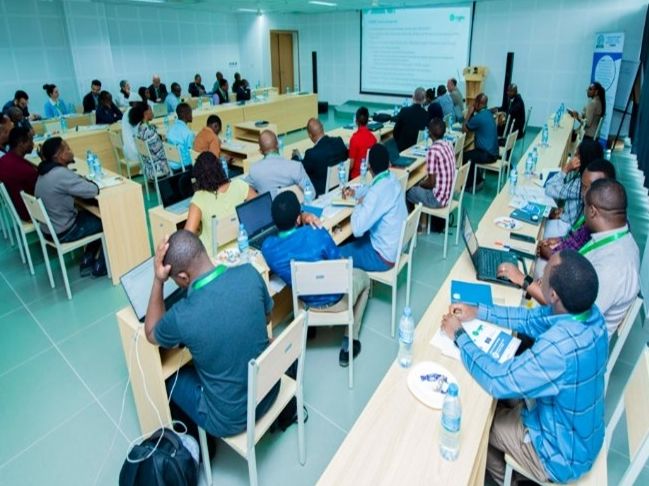


The sessions in progress facilitated by Antonio, Kurt, and Prof Santos Kiwhele
The session on Saturday allowed the students to show case the work that they were busy with on the topic of Rural Electrification, under the grants provided by the Charity founded and funded by the late Prof. Francesco Iliceto (CIGRE distinguished member and IEEE fellow). A trip to the Electrical Engineering faculty buildings followed in the afternoon, where several facilities and test laboratories were visited.
On Sunday the delegates were taken to a field visit of TANESCO Kinyerezi Power Plants I and II, located on the outskirts of Dar es Salaam, with 240 CCGT + 150 MW OCGT power station operated on domestic gas and which is currently undergoing significant expansion. It was an interesting occasion to discuss in a very open way the future trends, needs, and energy strategy of this Nation, characterized by democratic decision-making processes and a high attention to the social needs of the population.
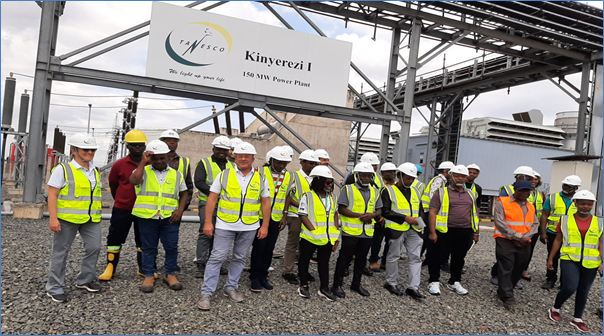
Site visit to the Kinyerezi Power Plant
Enhancing CIGRE visibility and Targeting an East African National Committee
An important upside of the event was the awareness that was created about CIGRE and its activities, thus prompting individuals and institutions to approach our body of knowledge as members. A meeting was held with representatives of industry and institutions attending the workshop, to form an alliance of prospective members of a proposed future East African CIGRE National Committee, also encompassing Uganda and Kenya, and eventually further countries within the region. Antonio and Kurt went through the details required for setting up a new Committee, addressed concerns and clarifications from the members present, and shared relevant material from the CIGRE Central Office and from the recent experiences of setting up a National Committee in West Africa.
During the meeting, the host Prof. Santos Kiwhele committed to pursue the task of lining up a sufficient number of individual and collective members to establish a Regional Committee, and to propose a first board of leading members (Chair, Secretary, Financial manager, in liaison with the Paris Central Office) and to cooperate with some identified contact volunteers in the neighbouring countries. The Africa Work Group and the Central Office will follow-up and support this initiative as it proceeds through the various steps of approval to create a new CIGRE National Committee for the East African Region.
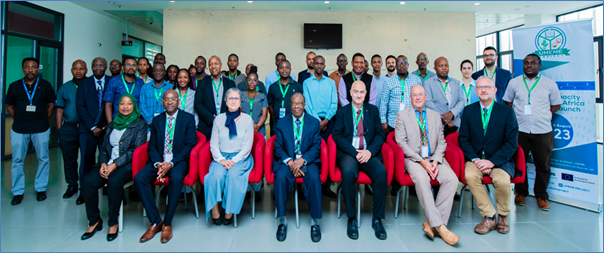
Attendees on the opening day of the “CIGRE Academy” launch at the University of Dar es Salaam
Other Considerations
Capacity building is the most immediate and impactful activity CIGRE can provide in Africa as a concrete contribution to its socio-economic development. It is totally aligned with the CIGRE Vision, Mission, and Strategy. The launch event demonstrated once more the value of physical interaction for maximising the knowledge exchange and the creation of enduring networking opportunities. With the new normal way of working, it allows professionals, wherever located, to quickly and efficiently access the knowledge necessary to bridge the challenges faced in their daily work.
CIGRE should continue to exploit the momentum created in Tanzania and broaden its territorial base by targeting young engineers and Women in Engineering. It was encouraging to see the high number of female engineers that were involved in their post-graduate studies in Tanzania, and it would thus be great if these could also become active and fully-fledged participants in the family of CIGRE going forward.
